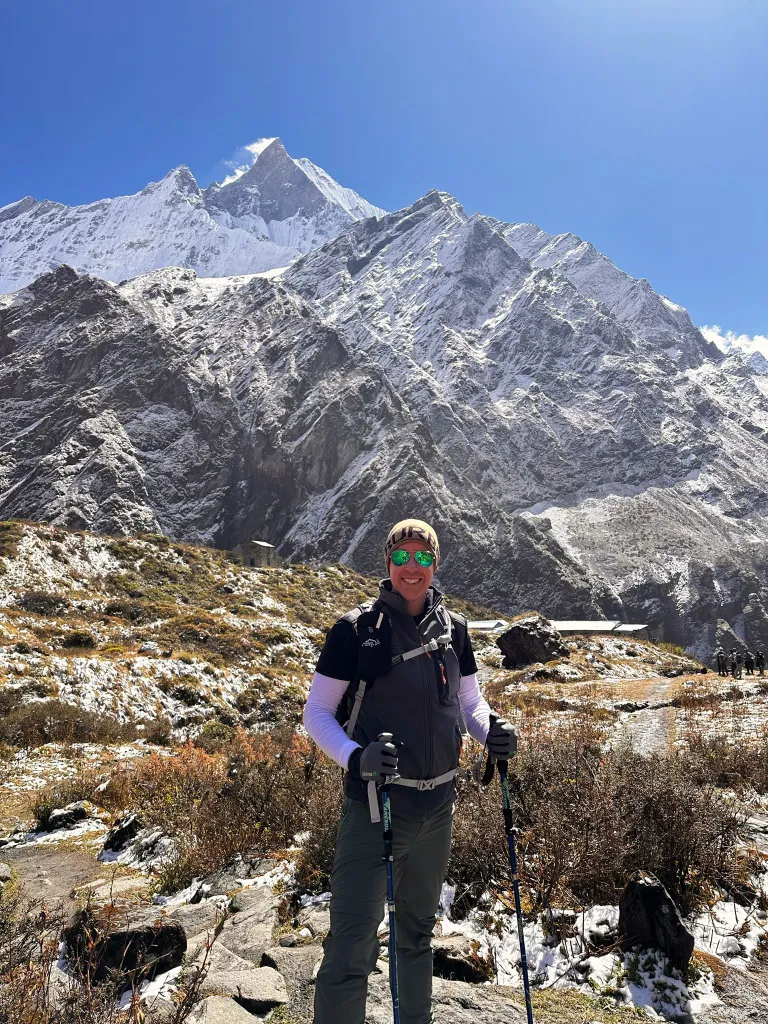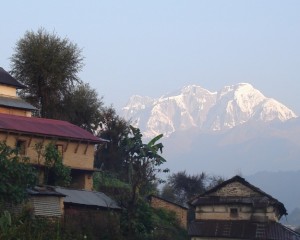Things you should know before Trekking at Everest Base Camp
The Everest base camp trek is a marvelous and thrilling journey. However, you must know things before trekking at Everest base camp.
The trekking at Everest base camp is an adrenaline-filled adventure that captivates the hearts and minds of adventurers. Nepal is between the breathtaking Himalayan peaks, especially the world's tallest mountain Everest.
Likewise, trekking at Everest base camp offers fun, thrill, and excitement. But what are the things to know before you trek in Nepal?
7 Ultimate Tips Before Trekking to Everest Base Camp
The trek to Everest Base Camp offers breathtaking vistas, cultural immersion, and a profound sense of accomplishment. However, jumping into the expedition requires more than just enthusiasm.
Moreover, it demands meticulous preparation and a deep understanding of the challenges ahead. Lace-up your boots as we uncover the essential things you should know before trekking in Everest base camp.
Physical Fitness and Endurance are your keys.
You must achieve and maintain a high level of physical fitness to trek at Everest base camp. The demanding terrain, steep ascents, and high altitude require optimal physical conditions.
The main things to focus in building stamina and endurance. Cardiovascular exercise, strength, and core training increase your overall performance. Running, hiking, and cycling improve cardiovascular fitness and replicate the continuous physical effort required during the Everest Base Camp trek.
Similarly, strength exercises such as squats and lunges develop lower body strength, while core exercises enhance stability and balance. You should incorporate acclimatization techniques like altitude training helps your body adapt to the low oxygen.
Mental Health must be your priority.
Ahh! Trekking at the Everest base camp is no joke. You should understand the challenges you will face are crucial, including physical demands, unpredictable weather, high altitude effects, and mental strains.
Additionally, you should familiarize yourself with altitude sickness symptoms and preventive measures to take necessary precautions.
The best way to stay focused and motivated is to build resilience through mindfulness techniques and positive self-talk. You should mentally prepare to conquer the trek and embrace the journey entirely.
Pack the right gear lightly and correctly.
You need good quality gear as they are a partner for your trekking journey. The clothing layer should adapt to changing weather conditions, including moisture-wicking base layers, insulating mid layers, and a waterproof outer shell for well prepared Everest base camp trek.
Moreover, invest in sturdy trekking boots and cushioned socks to keep your feet comfortable. Also, watch a durable backpack and a compact daypack for essentials like water, snacks, and navigation tools.
You should bring a high-quality sleeping bag suitable for cold temperatures and consider a sleeping bag liner for comfort. Prioritize your gear selection's comfort, durability, and functionality to ensure a safe and enjoyable journey.
Permits should be smooth.
The permits are essential in unlocking any destination of a new country. In the case of trekking to the Everest base camp journey, there are some permits you should know beforehand.
Sagarmatha National Park Entry Permit and the TIMS cards are permits required to support conservation efforts and regulate the trek. Meanwhile, you should immerse yourself in local regulations and protect the environment, culture, and safety of trekkers and local communities.
It includes waste management practices, respecting sacred sites, and following designated routes. Nepal Vision Treks are here to cover all the permits and permission to help make your trip efficient and effective.
Safety is necessary at every step you take
Safety and emergency preparedness during the Everest base camp must be prioritized. You should find a reputable trekking company, as they know to navigate the terrain and ensure your safety throughout the journey.

You should also carry reliable communication devices and educate yourself about the emergency helpline. At the same time, obtain comprehensive travel insurance that covers trekking and carry insurance details and emergency contact numbers.
Respect the Local Community and Environment
There is a famous proverb, Leave no Trace. That means responsibly managing waste, respecting local culture and customs, and supporting local communities. You also contribute significantly to preserving the environmental and cultural heritage of the Himalayas.
Additionally, you ensure region sustainability by packing out trash, using reusable items, respecting wildlife and cultural norms, and choosing local businesses. Also, you should foster a positive relationship between trekkers and the local communities you encounter along your journey.
Maintain your Health and well-being.
Traveling can make it hard to maintain your Health. You should hydrate by drinking plenty of water and utilizing water purification methods.
Moreover, fuel your body with a balanced diet and pack high-energy snacks, considering dietary restrictions. You should maintain personal hygiene through regular hand sanitization and proper handwashing.
The next step is to take proactive measures to prevent common illnesses, such as acclimatizing gradually, packing necessary medications, and familiarizing yourself with first aid procedures.
To wrap up, Trekking at Everest base camp is for the adrenaline junkie. However, you must memorize these tips to ensure a smooth trekking journey. Nepal Vision Treks will be your partner in assisting your trekking trip.
FAQS
1) Is Nepal a safe country to visit?
Nepal is generally considered safe for tourists. However, taking standard precautions like avoiding isolated areas at night, using registered taxis, and being cautious of pickpockets in crowded areas is advisable.
2) What should I pack for my trip to Nepal?
You should pack lightweight and comfortable clothing suitable for your visiting season. If you plan to go trekking, include sturdy footwear, warm layers, a good quality backpack, a hat, sunglasses, and sunscreen.
3) Do I need travel insurance for Nepal?
It's highly recommended to have travel insurance that covers medical emergencies, trip cancellation or interruption, and emergency medical evacuation.
4) Is it necessary to hire a guide or porter for trekking?
It is optional to hire a guide. But you can hire a guide to enhance the trekking experience. And unfamiliar trail of trekking.
5) What precautions should I take regarding altitude sickness?
Altitude sickness can affect anyone ascending to high altitudes. Acclimatizing properly is crucial by ascending gradually, staying hydrated, avoiding alcohol, and listening to your body.
6) What are some cultural norms and customs in Nepal?
There are cultural norms you have to follow and respect in Nepal. You should dress modestly, remove your shoes before entering temples and ask permission before clicking pictures of people.






